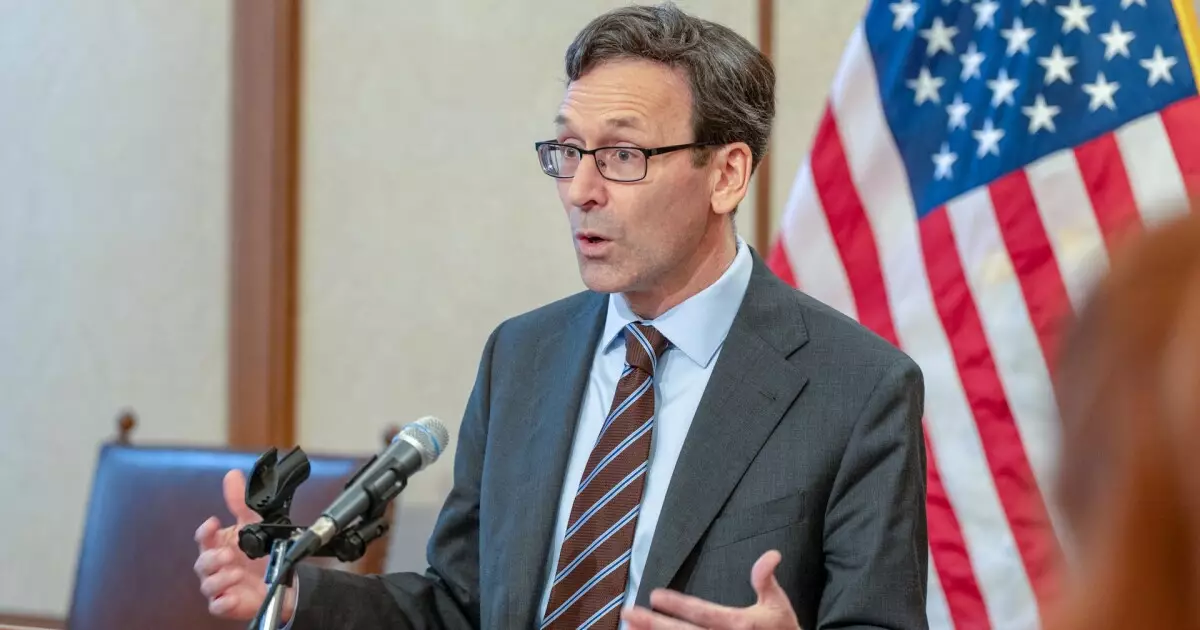5 Disturbing Examples of FEMA’s Neglect in Disaster Recovery Funding

In recent months, a disturbing trend has emerged regarding the federal government’s response to natural disasters in the United States, specifically through the actions—or lack thereof—by the Federal Emergency Management Agency (FEMA). The agency’s refusal to provide disaster recovery funding to Washington and North Carolina starkly exemplifies an alarming inconsistency in disaster relief protocols that should concern every American. When states suffer catastrophic events, expectations for prompt and effective assistance are not just legitimate; they are essential for restoring communities and saving lives.
In Washington, a bomb cyclone struck in November, wreaking havoc with winds clocking in at 77 mph and torrential rain that plunged over 600,000 residents into darkness. The aftermath included two tragic fatalities caused by fallen trees, and yet, the request for federal relief funds was denied without justification. Washington’s then-Governor Jay Inslee, subsequently succeeded by Bob Ferguson, had meticulously outlined the dire need for financial assistance, specifying the necessary funds for repairing critical infrastructure—public highways, utilities, and electrical systems. Despite meeting the objective criteria for emergency funding, FEMA’s silence and denial raised pointed questions about the agency’s accountability.
The Human Cost of Inaction
The ramifications of FEMA’s refusal to assist transcend financial numbers; they seep deep into the lives of ordinary people who find themselves grappling with an uncertain future. For instance, when North Carolina was pummeled by Hurricane Helene—leading to an estimated $59.6 billion in damage—Governor Josh Stein sought an extension for federal reimbursement costs. Amid the tragic backdrop of families displaced and homes lost, Stein’s disappointment mirrored a broader collective outrage. It is not merely a number game; it is about human lives and real suffering. Communities in Western North Carolina are still reeling from the storm’s aftermath, desperately needing help to clear debris and restore essential services.
What is particularly concerning is the timing and manner of FEMA’s communication regarding these denials. For Stein to learn about FEMA’s refusal while standing in a devastated community underlines a profound lack of empathy and urgency that federal agencies should embody. Recovery from natural disasters often takes place amidst emotional turbulence, compounded by the uncertainty of financial resources—FEMA’s actions seemingly trivialize this experience.
Political Fallout and Callous Leadership
The troubling decisions by FEMA have garnered responses from political leaders across the aisle, yet they reveal an unsettling reality: a politicization of disaster relief that is deeply cynical. Both Governors Inslee and Stein, despite their Democratic affiliations, are united in their appeals for reconsideration. These denials draw attention not just to the administration’s priorities but also highlight a systemic weakness within FEMA, which has suffered under the previous administration’s disdain for federal assistance programs deemed “inefficient.”
Under the Trump administration, FEMA was reportedly weakened by firings and a distracted focus, suggesting that the agency’s efficacy was sacrificed at the altar of political agendas. Even though jurisdictional lines may tilt based on party lines, the principle of providing aid to affected states should remain sacrosanct. Instead, the disaster recovery process has devolved into a battleground for political grudges.
A Call for Re-evaluation
As citizens, taxpayers, and volunteers rally to support communities in need, the stark absence of federal assistance is not just a logistical issue—it reflects a failure of leadership and commitment to justice for those affected. It is crucial to re-evaluate FEMA’s role and how disaster recovery funds are allocated. Is the metric of qualifying funding on an efficient basis still valid when lives hang in the balance?
Critics fear that by dismissing urgent funding requests, we are not only delaying recovery but also sending a message that the needs of American citizens can be overlooked when bureaucratic processes dominate. The human element must remain at the forefront of disaster recovery; fiscal responsibility should not become an excuse for callousness. As we proceed into a world increasingly impacted by climate disasters and extreme weather, it becomes imperative that our federal agencies regain their sense of purpose as protectors and supporters of our most vulnerable communities.





